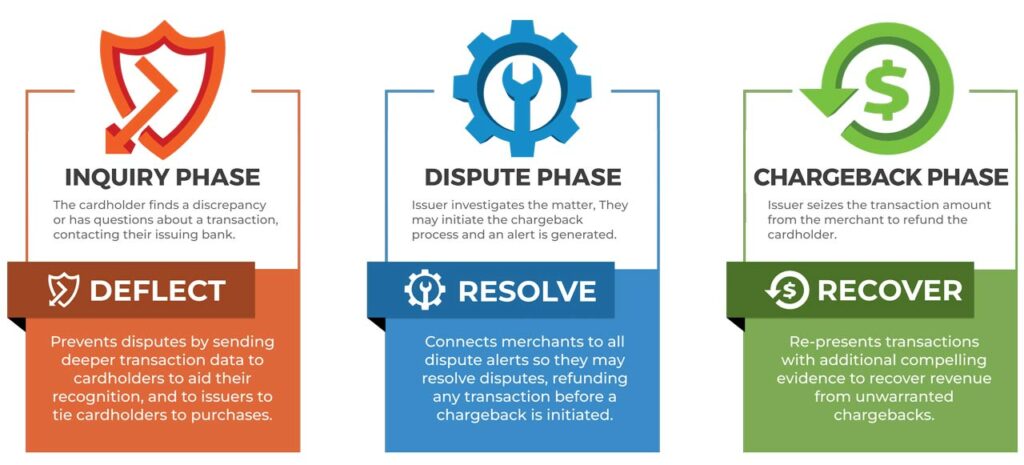Nowadays, no matter how big or small your business is, accepting credit cards on your store as a payment method will often face issues of disputes (Dispute), refunds ( Chargeback) or request resolution of inquiries (Inquiry). And if you have worked in this field for a while, you will understand this issue clearly. The law allows credit card users to ask their bank to refund a transaction when they have a problem with a payment on their credit card.
So, the target of PlutusPay In this article today, we will help you understand the concepts and differences between Dispute, Chargeback and Inquiry.

Dispute, Chargeback and Inquiry explained
What is Dispute?
Visa now officially uses the word “Dispute” to replace the commonly known case of Chargeback. In most cases, a Dispute will occur when a cardholder disputes a transaction on their card account, which may result in the card-issuing bank performing a Chargeback.
You will often see the word Dispute used when talking about a card holder disputing a payment on that card. This is the first step in the Chargeback process, when the card owner calls the bank and requests a refund of a specific payment.
Once the customer explains his or her reasons for the dispute and provides supporting evidence, the bank will decide whether the Dispute becomes a Chargeback or not.
What is Chargeback?
When the cardholder's bank issues a Chargeback, they will deduct the Disputed amount from your account immediately and will also charge a Chargeback fee. This fee will be used by the bank to handle the Chargeback process.
Often banks will accept Chargeback requests from customers, but if the reason for Dispute clearly does not fall under the list of valid reasons for conducting a Chargeback, they may not do so and request the customer Resolve the problem directly with the seller (Seller)
This is not the only instance where the word “Dispute” is used. Sometimes, this word is used interchangeably with the word “Chargeback” to refer to the entire process from start to finish. For example, official Visa documents use the word “Dispute” instead of chargeback.
Sometimes, you may also hear someone talking about Seller Dispute a Chargeback. In this context, the word “Dispute” does not refer to any specific term, it is just used as a common English word to describe the Chargeback processing process.
What is an Inquiry?
Next, the Inquiry is an important step banks take to determine whether they should proceed with Chargeback or not.
This is how the bank shows trust in the seller when the card holder requests to perform Chargeback. However, this will depend on the card's network's Dispute resolution method.
For Visa, Disputes with reasons falling under the categories of Processing Error or Consumer Dispute will be listed as Inquiry. However, Disputes for reasons such as Fraud and Authorization (if verified by Visa Resolve Online) will go directly into the allocation workflow. The allocation process will start with the Chargeback phase, not the Inquiry phase.
With Mastercard, they skip the Inquiry stage by evaluating cases through affiliated banks as soon as the Chargeback case is sent to them.
It is important that you will have the opportunity at the Inquiry stage to prevent a Dispute from becoming a Chargeback. Therefore, you must respond to stakeholders at the right time. And if you succeed in avoiding Dispute cases, it will help reduce your Dispute rate and prevent revenue loss due to too many Chargebacks.

summary
Hopefully after this article, you will understand the concepts and differences between Dispute, Chargeback and Inquiry. Therefore, when a Dispute turns into a Chargeback, remember that often appealing such cases is the best way to handle them. Submitting a Chargeback dispute will help you understand why they happen, what pain points your customers are facing, and what you can do in the future to fix them. prevent similar Dispute cases from happening again.
